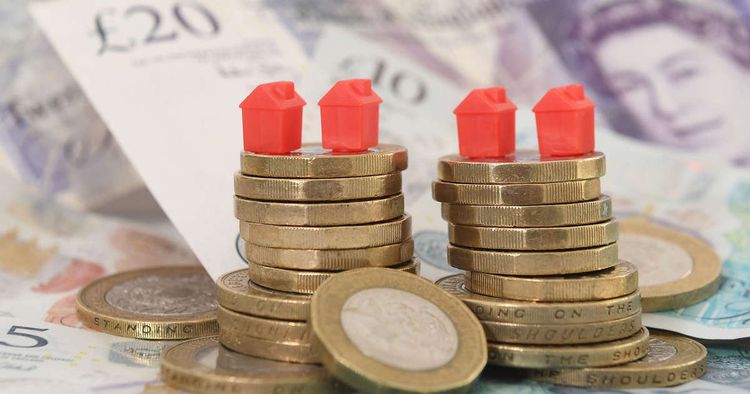UK debt mountain hits £2.6 trillion - or more than we all produce in a year

have been a popular option for borrowers for many years. These types of mortgages allow borrowers to only make payments on the interest portion of the loan, rather than paying back the principal amount as well. While interest-only mortgages may seem like an attractive option, there are some drawbacks to consider. One major drawback is that borrowers may end up owing more money than they originally borrowed. This is because they are not paying back any of the principal amount, which means that the loan balance remains the same over time. Another disadvantage of interest-only mortgages is that they can be more expensive in the long run. Because borrowers are not paying back any of the principal, they are essentially paying a higher interest rate over the life of the loan. Finally, interest-only mortgages can be riskier for borrowers because they do not build up any equity in the property. If housing prices were to decline, borrowers could find themselves owing more than the value of their home, making it difficult to sell or refinance. Overall, interest-only mortgages can be a viable option for some borrowers, but it is important to weigh the advantages and disadvantages before making a decision.
On Wednesday, official statistics disclosed that the debt mountain of Britain soared to a staggering £2.6 trillion in May. This amount is even higher than our total annual production.
The government's borrowing for May skyrocketed to £20 billion due to the exorbitant expenses accumulated by the energy support programs.
The government's borrowing in May has risen by £10.7 billion compared to last year, marking it as the second-highest borrowing amount for the month of May since data recording began in 1993, as reported by the Office for National Statistics.
Experts in economics previously estimated that the amount of borrowing for the month of May would reach £19.5 billion.
According to recent data from the ONS, the net debt amounted to a sum of £2.6 trillion by the end of May. This value roughly corresponds to 100.1% of the UK's gross domestic product (GDP).
It's been a while since the debt-to-GDP ratio hit the 100% mark since March 1961, if not for the pandemic, but that was later adjusted downwards.
Economists caution that when a country's debt rises to extremely high levels, it becomes more difficult to manage public finances due to high interest payments on large borrowings.
It is worrying that the country is burdened by high debt as it could negatively impact the economic opportunities for the generations to come.
The Government's Chancellor, Jeremy Hunt, stated that tough choices are being made to restore financial balance after the pandemic and Vladimir Putin's attack on Ukraine.
He stated that a considerable amount of money was appropriately used to shield families and companies from the severe consequences of the pandemic and the energy crisis caused by Putin.
It would be extremely unjust to burden upcoming generations with a debt that they are unable to settle.
This is the reason why we have made some tough yet important choices to achieve financial equilibrium with the intent of decreasing inflation by 50% this year, boosting the economy, and lowering the overall debt.
Rachel Reeves, the shadow chancellor, expressed her belief that the current problem cannot be resolved by the Tory government since they are, in fact, the root cause of the issue.
Over the course of 13 years, the Conservative party and their ineffective mini-budgets have caused harm to our economic stability and have resulted in families experiencing greater financial struggles.
We require a more robust economy, stable financial situation for families, and a strategy to seize the opportunities presented to us.
Sign up today for any of Evening Standard's newsletters, which range from daily news updates to Homes & Property insights, as well as lifestyle, events, exclusive offers, and many more. Receive the most interesting stories straight to your email inbox by clicking on this link.
If you decide to buy something through the recommended links featured in this article, Microsoft and its partners may receive financial compensation.
Set MSN As My Homepage
Press the option "Save File" when it appears on the window that pops up.
Press the arrow icon located in the uppermost corner of your web browser.
Press the button to execute the saved document.
When you click to initiate the operation of this file you have downloaded, you are acknowledging your acceptance of the Microsoft Service Agreement and Privacy Statement. This setup will function on popular web browsers such as Internet Explorer, Firefox, Chrome, and Safari.
Is the download not initiating? Consider giving it another attempt.





























































